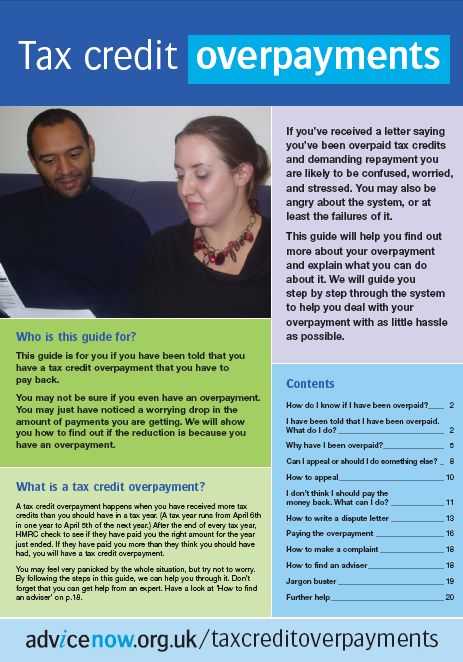 While the ugly phrase ‘tax credits’ sounds like it reduces your liability, actually it means you get a payout, and for many it means thousands.
While the ugly phrase ‘tax credits’ sounds like it reduces your liability, actually it means you get a payout, and for many it means thousands.
Plus every year, by July 31, ensure you renew or future payments could stop & past payments go wrong.
In this guide
Quick Links:
| Tweet | mse.me/taxcredits |
 The Five Facts Everyone Should Know
The Five Facts Everyone Should Know
Before we get to the nitty-gritty, if you only remember five things about this, make it...

Tax Credits can be worth £1,000s a year
While the system’s over-complex, the big picture is many people are £1,000s a year better off due to tax credits. The average payout for childcare alone is £3,000+. So always do an eligibility check.

You can lose thousands if you don’t renew properly
If you get tax credits, then you’ll be sent a renewal form each year between April and July. Some just need checking, others signing and sending back – don’t miss it though – it can mean your payments stop completely and you’re asked repay all the money since April. See the full renewal help section for how to protect yourself.

Tax Credits aren’t just for those with kids
There are two types of tax credits, the Child Tax Credit and the Working Tax Credit. The first, of course, is only available to those with kids – and even some families earning over £42,000 may get it. Yet Working Tax Credit supports those on low incomes in work and you don’t need children to get it see the what tax credits are available section.

Being overpaid may sound good but it’s a nightmare
While getting more than you’re entitled to may sound good, for most it's a nightmare that should be avoided. If you are overpaid, at some stage you may have to pay back all the money they’ve given you – this may be taken from your future tax credits – meaning you’ll have much less to live on then. See the overpayment help section for more.

Not reporting changes can cost you a fortune
If there’s one thing every tax credit recipient should know it's if their circumstances change "TELL ’EM, TELL ‘EM, TELL ‘EM!" and better still note down exactly when and what you told them too. This is because if you’ve correctly informed them and they overpay you – you won’t have to give the money back. If things have changed and you haven’t told them, you will. See the changed circumstances section to check what you need to tell them.
What are tax credits?
Tax credits are payouts made regularly into your bank account from the state to support those with children or in work but with a low income. They're paid via the tax office and anyone aged over 16 who normally lives in the UK can apply to get them.
There are two types of tax credits and you can be eligible for none, one or both:
Eligibility:
Anyone with children, whether working or not, could be eligible
Eligibility:
Anyone who works, whether they've got kids or not, could be eligible
The amount you can get depends on a number of factors:
- Your income. The more you earn, the less you're likely to get (see what counts as income?)
- Single or couple. Couples need to make joint claims based on household income (see what counts as a couple?).
- Number of children. The more kids, the more you could get.
- Working hours. Work over 16 or 30 hours (depending on other circumstances) a week to be eligible.
- If you've a disability. More's available for those getting some disability or sickness benefits.
For more on the specific entitlements and exactly how much you can get see the Child Tax Credit and Working Tax Credit sections.
How to renew your claim
Every April or May those who get tax credits will be sent a renewal pack, which needs to be sent back by 31 July. It's vital that you deal with this as it has much more significance than you may think. And crucially...
The tax credit hotline, is often engaged near the deadline. This causes nightmares, so call now to avoid them.
Check the renewal EVEN if you don't want to claim anymore
This is because the renewal pack isn't just estimating your credits for the next year, it's checking whether you were correctly paid for the last year. So failing to sort it out could leave you suffering overpayment or underpayment problems.
How does the renewal system work?
The packs look at how much you earned in the previous tax year (April to April) which is then used to check you received the correct payment last year and also to calculate the amount you’ll get the next year.
Some people (usually those with higher claims) may also receive a letter asking for more information on their claim. This is not a scam, though if you are contacted it will only be by letter, not email or phone.
What’s in the pack?
Everyone will get an Annual Review form and some will get an Annual Declaration form too.

The Review Form:
Only return it to make changes
What is it? It's simply a form for you to look through and indicate if anything has changed. To recognise it, at the top it says "Tax Credits - Annual Review for the year ended 05/04/xx".
Who gets it? Everyone, but for those who ONLY get this form it will come in a BROWN envelope. This will apply to the following people:
* Just getting the family element of Child Tax Credit
* Claimed tax credits but didn't get them because their income was too high
* Received Income Support, Income Based JSA, Income Related ESA or Pension Credit for all of the tax year
* Entitlement to Tax Credit stopped before 6 April 2011
What to check? Check all the information is correct, especially income. If it is (and you got a brown envelope so only received this form) you don't need to do anything, your credits will be automatically renewed.
However if any information is wrong, let the tax office know as soon as possible via the Tax Credit Helpline on 0845 300 3900.
What if I miss the deadline? If you have changes and miss the deadline, you risk being overpaid or underpaid. Underpayment means you won't get what you're due, and even if you do try and claim later, you can only backdate for three months so may miss out.
Overpayment means they give you too much and, while this may sound good, the tax office will ask for the cash back even if you've spent it. This is one of the single biggest tax credit nightmares and you need be careful.
If you deliberately mislead over tax credits you can be fined or, in the very worst case, criminally prosecuted.

The Declaration Form:
You MUST return it if you get one
What is it? It's a form with a few assessment questions on. You MUST complete it and return it to the tax office if you've been sent one or your tax credits may stop. The declaration form is in four parts: benefits, income, circumstances and a place to sign, and has a few coloured boxes to complete.
Who needs to fill it in? Only people who receive one - you'll know as it'll come in a WHITE A4 sized envelope. If you don't get one, you don't need to fill it in. It's as simple as that.
What to check? You need to check whether the details on your review form are correct but make any changes on the declaration form.
What to do? If it's all correct, sign the form and send it back or call the Tax Credit Helpline on 0845 300 3900 to confirm your details. If you have changes, complete them on the form and send it back or call the Tax Credit Helpline.
What if I miss the deadline? If you fail to send back the declaration form your tax credits will stop. You'll then need to make a new application, which can only be backdated for a maximum of three months, so you could miss out on some payments AND have to pay back any money you have already received.
If you deliberately mislead over tax credits you can be fined or, in the very worst case, criminally prosecuted.
Top tips for filling out the renewal forms
If you find the renewal process complicated here's some tips to help make it as easy as possible:
- Read the guidance notes. The notes that come with your form will tell you exactly what to do but if you're still finding it confusing there's other tips below...
- Let them know if the info is wrong. If any of the details on the form are incorrect (both info you told them at your last renewal or something you've updated during the year) put an ‘X’ in box 3.2 on your Annual Declaration form and update the details.
-
 Watch the renewal videos. The direct.gov website has a video step-by-step renewal guide. You can watch the relevant videos for the section you need help on.
Watch the renewal videos. The direct.gov website has a video step-by-step renewal guide. You can watch the relevant videos for the section you need help on.
- Tell them about all of your income. If you are sent a Declaration Form ensure it includes the income you get from all of your (and your partner if relevant) jobs.
- Sign the form. One of the most common mistakes is not signing the Declaration Form. If it's not signed it will delay your renewal - so double check you have.
Don't miss out on updates to this guide Get MoneySavingExpert's free, spam-free weekly email full of guides & loopholes
Tell them if your circumstances change
It's crucial that if anything changes that impacts tax credits, you tell the tax credit office as soon as possible, even if you're not obliged to, otherwise you may find you owe them money.
Click the pic below to see Martin's video on Daybreak about updating your circumstances:
Sometimes the Tax Credit helpline may contact you to check if anything's changed in your circumstances. This is perfectly normally, it is not trying to catch you out, but may be able to solve any overpayment problems before they happen.
The reason this happens is simple. Payments are ESTIMATED from last year's earnings, so if things change, and you don't tell them you'll be under or overpaid.
The most important thing we can yell out to everyone is, if your circumstances have changed...
"TELL THEM, TELL THEM, TELL THEM!"

So don't feel you need to wait until the yearly renewal to update your details.
When you must tell the tax office
There are some circumstances, usually where it means your payments will go down, where you are obliged to tell the tax credits office within one month of it happening. If you don't let them know you may be fined £300.
- Change of status. If you move in with a partner, get married or leave the UK for longer than 8 weeks.
- Drop in working hours. If you stop working or your hours drop below your 16 or 30 hour threshold.
- Change in childcare. If your childcare costs go down, your child leaves home or you start getting Childcare Vouchers.
When you should tell the tax office
There are some circumstances where you needn't tell the tax office until renewal, usually where it means your payments will go up. Yet don't wait, as it could also lead to overpayment problems, which means you're earning more money than you should and at the end of the year it'll ask for the cash back. Not good if you've already spent it!
- Job changes. You change your job or your income goes up or down.
- New children. You’ve had a child (or you’ve fostered or adopted a child).
- Childcare costs. You start paying for childcare or your childcare costs go up (paying for childcare can mean you're entitled to more cash, see the Childcare Tax Credits guide).
- Address changes. You move house, bank account or have a new phone number.
Whether you need to notify the tax office or not, when you do inform it, keep notes. It's not unheard of for the tax office to say you didn't get in contact with it when you say you did, so get yourself a tax credits file and write down details of every communication you have with it. Include who you spoke to and when you called.
What to do if you’re overpaid
 Overpayments are where you have received too much money in the past which you don't qualify for. While it might sound good, the problem comes when the tax credits department asks for its money back and you've already spent it.
Overpayments are where you have received too much money in the past which you don't qualify for. While it might sound good, the problem comes when the tax credits department asks for its money back and you've already spent it.
The reputation of tax credits was slaughtered in the early years, due to a crisis of overpayments, and even though the situation has improved over the years, it isn't perfect now and many still have a lack of trust in it.
Overpayments usually happen because...
- You didn't tell the tax office about changes
You normally have one month to tell the tax office of any key changes in your circumstances, though discretion is given if you or a family member were seriously ill.
If you don’t let the office know of any changes within one month you could be asked to pay back any overpayments, so do it as quickly as possible to avoid potential issues. - The tax office didn't meet its responsibilities
It either made a mistake in your calculations or took longer than a month to update your records once you informed it of any changes.
Do I have to repay overpayments?
In a nutshell the answer is if it's your fault you do have to repay, but...
If the tax office is at fault, and you've correctly notified it in time of any changes, you won't have to repay.
Of course there may be a problem with evidence, and that can get tricky, but as a general rule, if you did it right and the tax office failed to carry out its responsibilities, the excess cash you were paid specifically because of that error is yours. The Tax office has also been told it can't take legal action for overpayments if you've not made any mistakes.
Don’t know why you got a overpayment letter?
If you don’t know why you overpaid, in the first instance call up the Tax Credits Helpline on 0845 300 3900 and ask for an explanation but follow up any issues in writing. If there isn’t a proper reason, you can challenge the decision. If nothing has changed there’s no reason for you to have been overpaid, and by challenging it your situation should be re-looked at.
 In your letter explain that you don’t know why it's an overpayment as nothing's changed, and as you'd indicated all the facts you don't believe you should’ve been overpaid.
In your letter explain that you don’t know why it's an overpayment as nothing's changed, and as you'd indicated all the facts you don't believe you should’ve been overpaid.
What if you think it's made a mistake?
If you think the tax office has made a mistake in its calculations you can start a Dispute or Appeal against repaying. Your overpayment will then be placed on hold while your case is investigated (a 'normal' complaint will not hold the overpayment).
- Disputes. Where you gave it the right info but it didn't act on it.
If you disagree that you should pay back an overpayment - for example you informed it that you had a decrease in childcare costs - but it continued to pay you the higher amount anyway, fill in form TC846 or send a letter. - Appeal. Where it's asking for money back it shouldn't be
If you disagree with the amount of tax credit you've been given, you can put in an appeal using the WTC/AP form and it'll be looked at by a tribunal. You must fill in the appeal form within a month of being told about the overpayments so act quickly.
An example of an appeal is when you've been correctly paid tax credits for three children, but they’re wrongly saying it's an overpayment as you’ve only got two who are eligible.
Whether it's an appeal or a dispute, give all information you can. Include any evidence and why you don't think you should repay.
If that's not successful you still have the opportunity to make a complaint, go to the adjudicator or even the Parliamentary Ombudsman.
- If you're still getting tax credits
It's likely your future payments will be reduced so the tax office can recoup the cash you've already had. This is usually 10%-25% of your weekly payment (but could be more for higher earners). - If your payments have stopped
If your payments have stopped, whether because you no longer qualify or didn't renew in time, you'll normally get a letter asking you to repay the entire amount within 30 days. A separated couple will usually be asked to pay back half of the money each.
If this happens and you can't afford it, simply contact the tax office and politely inform it. It will usually be possible to spread the repayments over a year. In extreme circumstances you may get even longer, or if the tax office believes you'll never be able to repay, have the entire amount wiped.
Get help on overpayments
Download the Low Income Tax Reform Group's detailed PDF guide to overpayments and how to cope with them below, plus more help...
Help from other MoneySavers: Go to the Benefits & Tax Credits forum board
Specialist detailed guidance: Go to the Low Incomes Tax Reform Group site
Tax Credit Forum: For more info go to Tax Credit Casualties
One on one help: The Citizens Advice Bureau and local law advice centers often have advisors who will be able to help you appeal or dispute unfair overpayment
Don't miss out on updates to this guide Get MoneySavingExpert's free, spam-free weekly email full of guides & loopholes
Should I be getting tax credits?
Tax credit payments now spread far and wide. Depending on the number of children you have some families earning up to around £70,000 may qualify for free cash, although the help drops quickly after £42,000.
How to check There are two easy online routes to use to check whether you're entitled to tax credits.
- Use the HMRC calculator.
The Government has its own HMRC calculator just to look at tax credits. It's a bit clunky but does the job. - Do a five-minute benefit check-up.
For a full check-up including other benefits as well as tax credits, see the Benefit Check-Up guide.
When you can put a claim in
You can claim any time during the year and initial claims can be backdated for up to three months. The easiest way to do it is via the Tax Credit Helpline on 0845 300 3900.
In your first year you'll be paid from the date of your claim until the end of the tax year (5 April), after that the payments will run every tax year.
There are two different types of tax credit...
Child Tax Credit: In detail
Child Tax Credit is for those who take care of any children eligible for Child Benefit (under the age of 16 or up to 20 if they're in full time education or registered with the Careers Service). Importantly, you don't need to be working.
It's made up of a series of different and separate elements, and the total you get is the sum of all those different parts.
The table shows the maximum amounts per element & the earning level it's available up to. If you earn more you may be entitled to a portion of the credit.
Child Tax Credit elements |
Max annual amount for 2011/12 |
You usually get the max up to family income... |
|---|---|---|
| Family element: For anyone with one or more children | £545 |
£40,000 |
| Family element extra: As well as the above, if at least one of your kids is under one you'll get this extra payment | Removed from Apr 2011 |
n/a |
| Child element: One amount per child | £2,555 |
£15,860 |
| Disability element: For each child that receives DLA, is registered blind or has been registered blind in the last 28 weeks you'll get this on top of the child element | £2,800 |
£15,860 |
| Severe disability element: For each child who receives the Highest Rate Care Component of DLA you'll get this on top of the child element and disability element | £1,130 |
Working Tax Credit: In detail
It's an oft held criticism that some people are better off on benefits than working. The aim of Working Tax Credit is to give an extra boost to those in work on lower pay, to stop that happening.
The payouts fall into two groups and if you're in a couple you'll both need to fit these rules:
- Working over 16 hours a week.
It's only available for those working over 16 hours a week (and less than 30) if you have a child, are disabled, are over 60 or are over 50 and returning to work after a period of unemployment. - Working over 30 hours a week.
Here, provided you're over the age of 25 and within the income criteria below, you should qualify.
If the household income is £6,420 or below, you'll get the maximum amount listed otherwise the amounts will be reduced depending on your income.
As with Child Tax Credit, it's made up of a series of different and separate elements, and the total you get is the sum of all those different parts.
The table shows the max per element. The more you earn, the less you'll get.
Working Tax Credit elements |
Max annual amount for 2011/12 |
|---|---|
Basic element: For anyone who works over 16 hours (and meets the tax credit criteria above)
|
£1,920 |
Couples and Lone Parent element: Either a payment for a second qualifying person in a couple or if you are a single parent (1) |
£1,950 |
30 hour element: An extra payment if you work at least 30 hours a week (if you have kids the 30 hours can be shared by a couple as long as you both work over 16 hours) (2) |
£790 |
Disability element: For working people who are disabled (3) |
£2,650 |
Severe disability element: For each person who receives the Highest Rate Care Component of DLA or the Higher Rate of AA you'll get this on top of the disability element (3) |
£1,130 |
50+ Return to work: Payment for people over 50 who are returning to work after being on another benefits such as income support (3) |
£1,365 (16-29 hours)
£2,030 (30+ hours) |
Childcare element: Allows you to get back up to 70 per cent of eligible childcare costs |
See the Childcare Costs
guide for full details. |
(1) Some over 50s are not eligible. (2) One payment per couple. (3) One payment per person. |
|
If you are unable to work due to sickness and you have a child or you are on maternity leave you may also be able to claim, check with the Tax Credit Helpline on 0845 300 3900.
Tax Credit Q&As;
The following are some commonly asked tax credit Q&As.;
Q. What counts as income for tax credit purposes?
This is any money earned from paid work, self-employed profits or some benefits (such as contribution based JSA or Employment and Support Allowance, Incapacity Benefit (in some cases) or Carers Allowance but not child, housing, council tax or disability benefits).
It also includes any extra income above £300 you (or a partner) receive from a pension, savings, renting out a property, or things such as a trust or interest in the estate of a person who has died.
You don’t need to include money paid for child maintenance or your children’s income and some maternity benefits are partly excluded.
For the self-employed, income is any profit made in the last tax year, as submitted on your tax return. If you haven't finished your tax return yet, make a best guess based on your profit so far. If your business is new and you've had no income from it in the last year, you can leave the income section empty.
Q. What should I do if I think I've been underpaid tax credits?
This is an easier scenario than overpayment. Usually your correct payment will be calculated as soon as you send back your renewal forms, or after 31 July if you don't need to send your review form.
If you think you've been underpaid at any other time do a full check on the HMRC calculator and contact the Tax Office Helpline on 0845 300 3900 to let it know.
Q. When will I get the payments?
You should start to get payments within a few weeks and you’ll be paid either weekly or every four weeks straight into your bank, building society or Post Office account. If you start to work too few hours your payments will continue for 4 weeks, otherwise you'll no longer get the credit if you're eligibility stops.
Q. What counts as a couple?
If you're married or living with someone, then you must put in a joint, rather than single, application. You can only put in a single claim if you don’t have a partner. If you're a permanently separated couple, then you are counted as a single parent and any payment is made to the child’s main carer.
Q. Who will the payments go to in a couple?
You only get one payment per couple. For Child Tax Credit or the childcare element of Working Tax Credit, payments are made to the parent who mostly looks after the child. Working Tax Credit payments will go to either partner, so you need to decide which account the money is paid into.
Q. Can I claim for childcare costs?
If you're paying for childcare it's important to include these costs in your tax credit claim, as the money available is huge, and it's possible 100,000s of families are missing out.
The average weekly payout is likely to be £61, that’s over £3,000 a year!
See the special Childcare Tax Credits guide for more info on what counts as childcare (from babies in swaddling cloth to stubbly six-foot 15 year-olds) and use the free Ready Reckoner calculator to get a rough idea on how much you could get. Remember though, the...
Q. Where can I find out how much credit I am entitled to?
It's easy to do a quick check up using the HMRC calculator or go through a more detailed one via the Benefit Check-up guide.
Ask A Question/Forum Discussion
Tax Credits Discussion
Spotted out of date info/broken links?
Email brokenlink@moneysavingexpert.com to let us know
Always double check the product details before signing up to them

LINKS THAT HELP THIS SITE (all have a * in above article)
(this has no impact on product or pick - see explanation below)
N/a
Explanation (of * links)
How this site is funded. Two types of contacts are listed. The first, which all have a * within the main body of the articles, help MoneySavingExpert.com stay free to use, as they're 'affiliated links' which invisibly take you usually via affiliate linkage or commercial money sites, which then pay this site. It's worth noting this means the third party used may be named on any credit agreements. The second type doesn't help and therefore doesn't have a *.You shouldn't notice any difference, the links don't impact the product at all and the editorial line (the things we write) is NEVER impacted by the revenue - we aim to look at all available products. If it isn't possible to get an affiliate link for the best product, it is still included in exactly the same way. For more details read how this site is financed.
LINKS THAT DON'T HELP THIS SITE
(please only use if necessary)
No * Link Available: HMRC , Low Incomes Tax Reform Group
Duplicate links of the * links above for the sake of transparency, but this version doesn't help MoneySavingExpert.com:
N/a





























